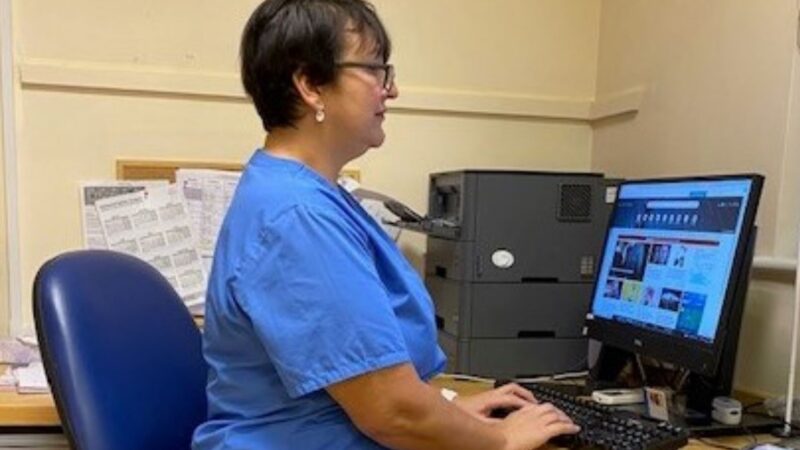She may not be a doctor but Julia Billington can do most things a GP can.
That’s because Julia is an as advanced clinical practitioner (ACP), meaning she is educated to Master’s level, which encompasses clinical practice, education, research and leadership and management.
It means Julia has the skills and knowledge to examine, assess, diagnose, treat, prescribe and make referrals for patients with undiagnosed problems.
She said: “If I tell you what I can’t do, that is probably easier than telling you what I can do. I’m not a midwife, so I can’t see anyone for pregnancy related issues. I can’t do ante-natal or post-natal care, but if someone came in and had an issue such as a sore throat or a non-pregnancy related issue, I could deal with it. And I can’t sign a death certificate.
“I see and assess patients. I prescribe for them – that doesn’t necessarily mean medicine, it can be non-medical too –social prescribing or signposting to the right information. I am able to refer to hospital care if I need to. So it’s a completely autonomous role.”
Julia added: “I can be having a conversation outside work with somebody and health often comes up. Somebody will start talking about medication and I will go into it in a bit more detail and say, for example, have you thought that that could be one of the side effects – or have you tried such and such?
“Then they ask if I am a doctor. I always explain that I’m not a doctor and that I work as an advanced clinical practitioner. I explain my role and that I see patients in a similar way.
“I think that some patients are not aware that it’s not just a doctor you can see for your health needs and there are other highly skilled people out there who can offer them the care they need. However, it’s important to get the patient’s consent as they are not seeing a GP. We are not here to impersonate a doctor but we are here to provide safe and effective health care.”
Based at Holmwood Corner Surgery in New Malden, Julia is also a Queen’s Nurse, which is a prestigious accolade that means she has demonstrated an exceedingly high level of commitment to patient care and nursing practice, and her daily diary bears testament to that.
“I can speak to 32 patients in a day, they can be telephone consultations, video consultations as well as face to face in the morning and the afternoon,” said Julia, who developed her skills via a wide-ranging series of qualifications after starting her career in A&E before coming into practice nursing.
“When I started in my current practice, my role included being the duty clinician, my workload was the same as a GP undertaking this role – so dealing with on-the-day emergencies, urgent prescriptions, taking urgent on-the-day telephone calls, including speaking to consultants or hospital doctors, as well as having my clinical session of seeing a patient coming in for a first diagnosis.
“I could see a patient with a sore throat through to a patient that came in with abdominal or cardiac chest pain – there is always the chance they could walk in and then ‘arrest’ on me. I’m trying to say that you don’t know what someone is coming in to see you about.”
For Julia, who is also the clinical lead nurse for Kingston, the biggest satisfaction she gets from her role is when she feels she’s made a difference for a patient but she also finds teaching students very rewarding.
She said: “I think for me the biggest achievement is always when patients are grateful and where I feel I’ve made a difference in somebody’s life – that’s always great. It’s not the best paid role that I do, but for job satisfaction, I think it is.
“It’s about the patient experience – ensuring that the patient has confidence in me and that I’ve dealt with their anxieties and healthcare needs.
“When a patient comes in, they may come across as being rude, and that’s very often anxiety. And it’s about giving that patient time to express how they feel and making sure that the experience from start to finish for them has left them feeling positive that they now understand what’s wrong with them or they know that they’re on the right track with me. And they’re confident in my ability to consult and treat them.”
She continued: “I’m passionate about practice nursing – I would definitely say I’m a practice nurse advocate. I’m very passionate about ensuring the patient experience is the best that you can make it. I’m very much about sharing my knowledge and experience of what I’ve learned. That’s why I am so passionate about teaching students and passing on my legacy.”
